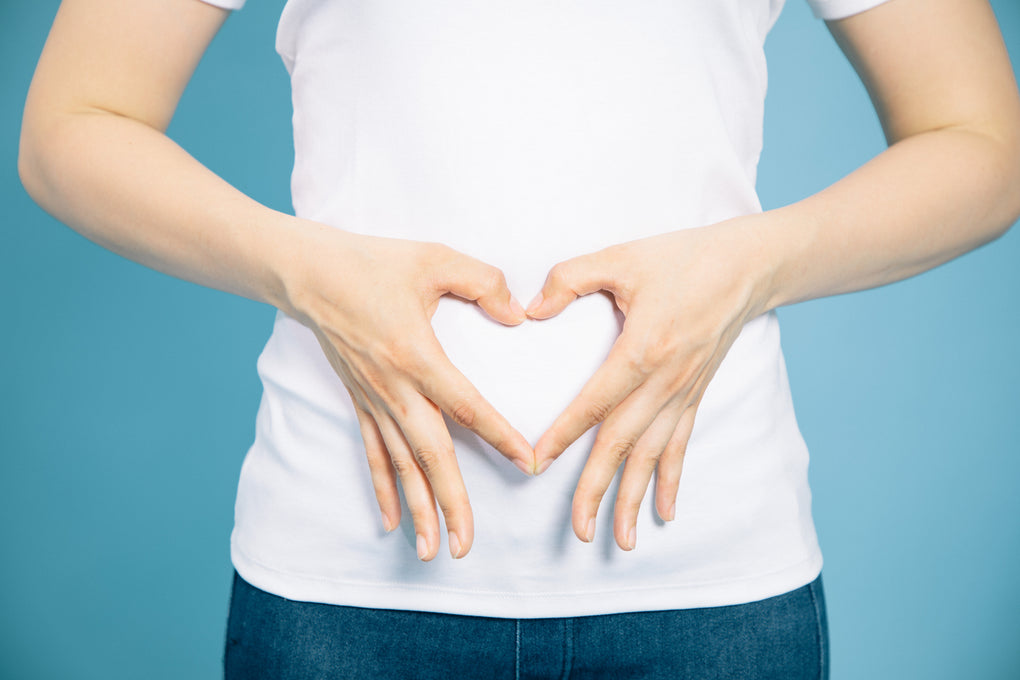9 Natural Remedies for Bloating
25th February 2019 / Health
9 Natural Remedies for Bloating
Emily Hedgman

Bloating is an unfortunate but somewhat unavoidable fact of life. Bloating has a number of causes, including:
- diet (especially rich and containing lots of fatty foods)
- overeating
- swallowing too much air
Although it is possible to reduce and eliminate some of these triggers, sometimes it catches us by surprise. Thankfully, there are a number of natural cures that can help reduce painful bloating and digestive discomfort.
1. Ginger
Ginger is commonly taken infused as a tea, or cooked into meals. It has a long history of being used to sooth digestive discomfort, as well as being used to alleviate nausea. Ginger is an anti-spasmodic. This means that it can help calm and prevent unnecessary muscle contractions. These muscle contractions are what lead to cramping and pain. Ginger has a secondary benefit to the digestive system, stimulating the release of bile, gastric juices and saliva. These all help to break down food more effectively; from the moment we put it into our mouths, to its digestion in the stomach where digestive enzymes like pepsin and rennin break down proteins.
2. Peppermint
Lots of us would refer to a cup of peppermint tea as soothing without necessarily knowing what it is that makes it so. Like ginger, peppermint is an anti-spasmodic, preventing painful muscle spasms. The ancient Greeks and Romans also used peppermint for its pain killing properties. Menthol and methyl salicylate, components of peppermint, activate receptors in the brain that block the transmission of pain signals to the rest of the body. Peppermint is particularly useful for helping the body digest fats as it stimulates the gallbladder to secrete bile.
3. Fibre
Without going into the nitty-gritty, one of the biggest causes of bloating is constipation. If you suspect this is cause of your bloating, then increased dietary fibre is the obvious solution. Most fruits, vegetables and whole grains are great sources of fibre, compared to processed foods, white carbs (rice, pasta, potatoes), dairy, and animal protein.
4. Chew properly
Regardless of what you eat, taking the time to chew your food properly and not rushing your meal can be helpful in preventing bloating. The more rushed you are, the more air you are likely to swallow (a main cause of bloating and flatulence). It is important to realise that chewing doesn’t just break down the food ready to be digested, it actually is the start of the digestion process. While you chew, enzymes are released that ready the food for your stomach.
5. Fennel
Whereas some vegetables can contribute to bloating, due to their high fibre content, fennel actually does the opposite. Acting as an anti-spasmodic, it helps reduce unwelcome muscle contractions in the colon. Greek, Egyptian, Indian and Chinese civilisations have used fennel for thousands of years to relieve flatulence and other digestive woes.
6. Garlic
Garlic isn’t just a delicious addition to savoury meals. Garlic can have a real effect when it comes to stopping bloating in its tracks. Not only can it stimulate digestion, meaning food spends less time sitting in the stomach causing problems, but it also has anti-bacterial and anti-fungal properties. This means that it can help regulate and monitor the number of bad bacteria in the gut, and help with yeast overgrowth.
7. Exercise
Getting moving is a terrific way to easy digestive discomfort, that can also be used in conjunction with another known remedy like peppermint or ginger tea. Although a big meal might make you want to lie down and take a nap, a better option would be to go for a 10 minute walk afterwards. Walking, jogging, yoga and other types of light exercise can help stimulate digestion, and move food through the stomach more quickly.
8. Water
Bloating can be caused by fluid retention, where your body holds onto water in your soft tissues, joints and cavities. Although the temptation might be to hold off on drinking water to shed some of the retained liquid, this is ultimately counterintuitive. By drinking plenty of water, the body remains fully hydrated and doesn’t feel the need to retain as much water. The NHS recommends drinking eight 200ml glasses of water a day, or around 1.6L total. Make sure to drink more if it is warm, or if you’re getting your sweat on doing some sort of exercise.
9. Probiotics
Probiotics are sources of different types of “friendly” live bacteria that are similar to the strains already found naturally in our gut. When these probiotic bacteria are taken in by the body in sufficient amounts, they can benefit our digestive health and have the potential to reduce digestive discomfort and bloating. Probiotics can be found in foods (yoghurt and cheese for example) as well as supplements - like our Symbiotic 7, which also includes a prebiotic. You can find out more about pre and probiotics in our dedicated blog article by registered Dietician Laura Tilt here.
From The Blog
-

25th February 2025 / Health
Empowering Women’s Health: Key Supplements for Well-being
Women’s health is a lifelong journey, with each stage presenting unique nutritional and wellness needs. From maintaining energy levels to supporting hormonal balance and bone health, the right comb...
Read article -

17th February 2025 / Health
Empowering Women’s Health: Lifestyle Tips and a Key Supplement for Perimenopause and Menopause
NaomiWomen’s health evolves through various life stages, and the transition into perimenopause and menopause brings unique challenges. During these phases, hormonal fluctuations can lead to symptom...
Read article -

10th February 2025 / Health / Products
The Best Foods and Drinks to Help Your Body Recover from Burnout
Burnout is a growing issue in today’s fast-paced work culture, leaving many people feeling exhausted, overwhelmed, and depleted. While rest and self-care are essential, nutrition plays a crucial ro...
Read article




